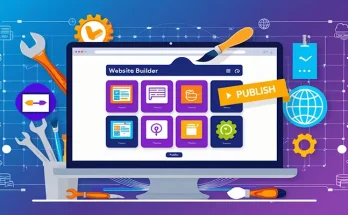Distance learning (also called blended learning) describes learning that takes place outside the classroom where the teacher and students are physically present. Many students who attend college through distance learning also take many of the same classes on campus, though they often use many internet resources and other course material at home. This type of learning allows the student to gain knowledge in the same way a traditional student would, by attending lectures, discussions, seminars, and other types of educational experiences. Although distance learning can be a beneficial way to study, there are some benefits that you should know about before enrolling in any classes.
The Distinction between synchronous and independent learning
When distance learning, many people become confused about the distinction between synchronous learning and independent learning. They worry that if they aren’t closely involved in the lessons that they are completing, they will not understand what is happening or feel like their work doesn’t have value. However, both synchronous and independent learning can be equally beneficial. Synchronous learning involves a set of instructions from a teacher that instruct the student on what to do for each lesson. For example, you may be completing an assignment while participating in a discussion on a certain topic, which helps you understand the instructions. Independent learning is doing your assignments; it is your job to figure out how to best complete them.
People who do not live close to the instructor or who are self-studying sometimes find that distance learning offers them the opportunity to get more out of their courses. Many people who do not have a fixed time online courses typically attend class during the morning, during lunchtime, and during the evening. Because the hours are often different, you can take the class at a time when it best works for you. If you work mornings, you will benefit from being able to go to work early and getting back to your daily routine before the sun comes up. If you work evenings, you can continue working throughout the night without having to wake up early to get ready for class.
Increased productivity
Other benefits of distance learning include increased productivity, as well as a better understanding of the subject matter. Because you are receiving instruction through the Internet, you can use the materials and resources that you are receiving in a way that you would if the class were in person. You are more likely to retain the information if you can read, listen, and compare things with a book or online study guide.
With most online courses, students are required to complete prerequisites beforehand. Some courses also allow you to complete the course even without finishing the prerequisite courses; however, you must still fulfill the requirements. With asynchronous learning, the courses are usually divided up into several manageable chunks, with each chunk using a different format. For instance, you might start with an introduction to the course and then move onto modules about the various topics within the area of the science of the day. Each module is usually brief, so there is no need to spend hours on research, but you still get all the requirements that you need for the class.
Easy to access the material
One of the benefits of distance learning is easy to access the material. In traditional classes, you will need to bring a printed copy of the assigned text along to a class or have it copied for you on your computer. With an internet connection, you can easily access all the material that is needed, even when you are on the road. You do not need to worry about losing the bookmarking material, and you can review the sections as many times as you want until you understand the concepts.
Taking assignments and communicate with other students
One of the benefits of distance learning is the ability to take assignments and to communicate with other students through video conferencing. Traditional education requires you to physically present your assignments to other people and then write them up, organize them, and make an attempt to pass them. With online learning, you can present your assignments through video conferencing, answer questions, discuss the assignments, and discuss the class assignment with other students. In many cases, you will be able to collaborate with other students from around the world through video conferencing.
The most important benefit of distance learning is the flexibility it allows you to enjoy. You can take the courses at the time that is convenient for you, without having to worry about getting behind on the courses or dropping them. You can work at your own pace, set your schedules, and choose the material that you want to study. Because you are learning online courses, you can easily complete the requirements at your own pace. The key is to find an accredited distance learning program to provide you with the coursework that is appropriate for your academic goals.





